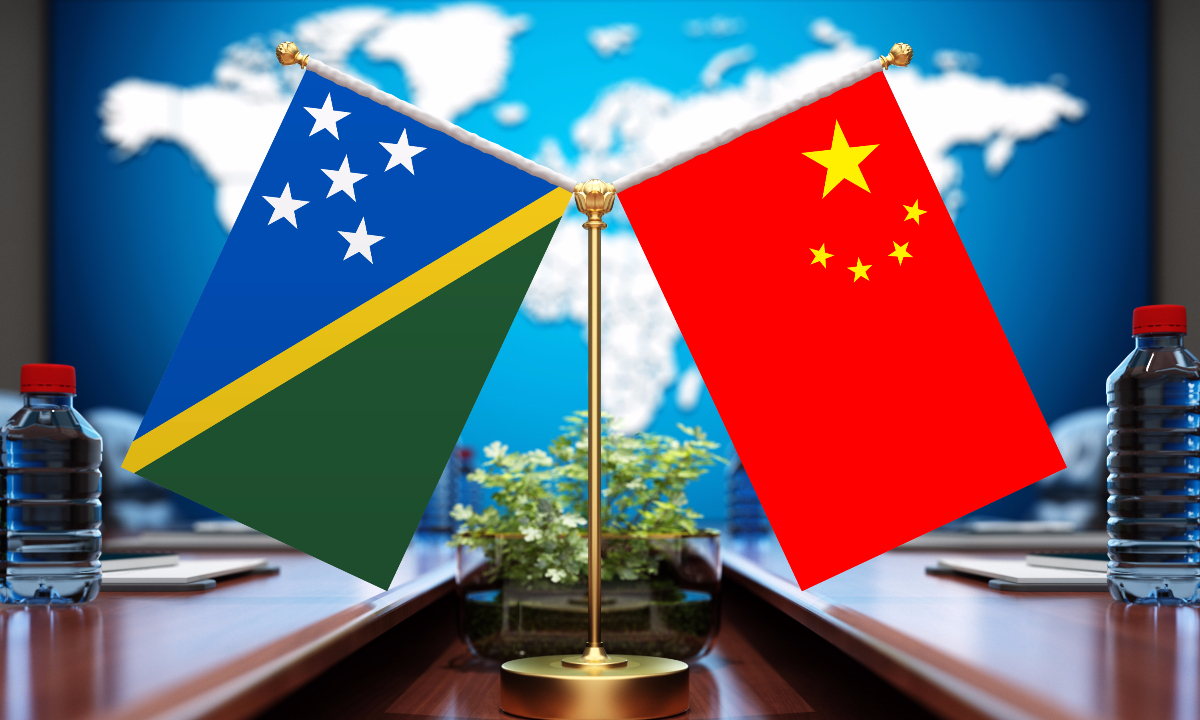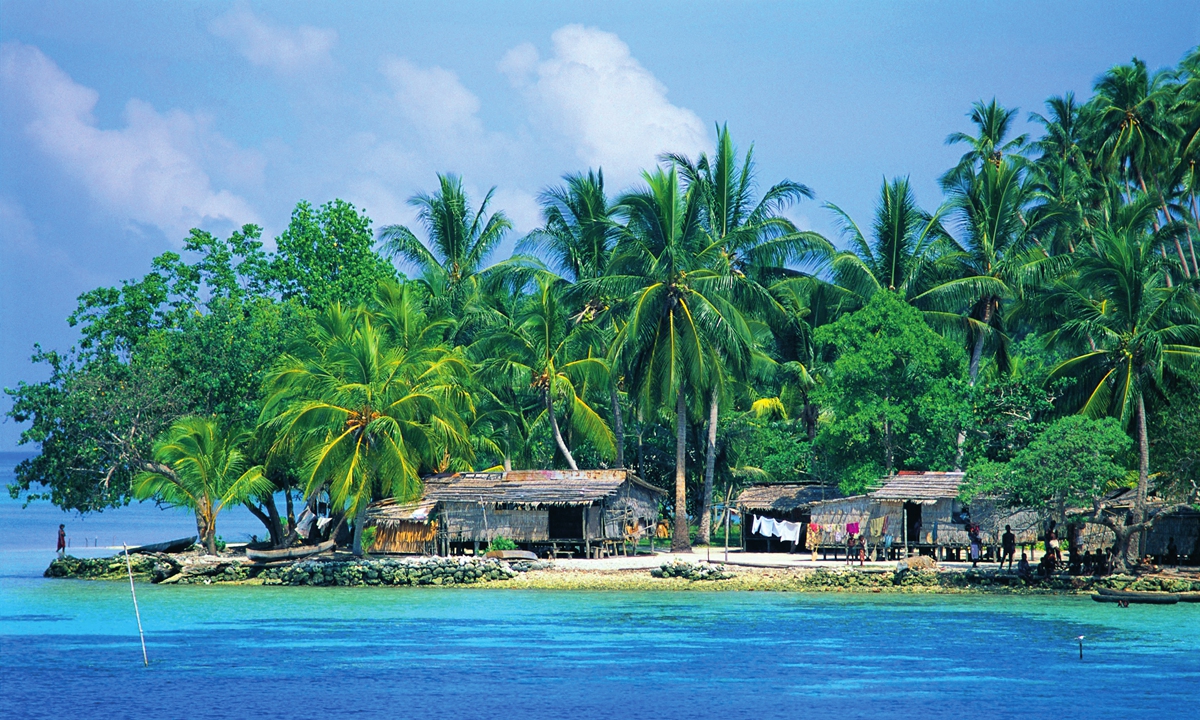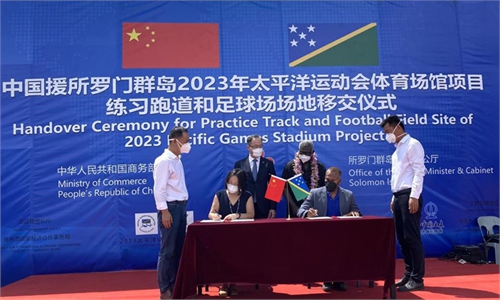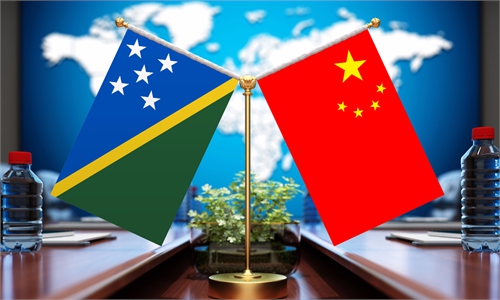Solomon Islands holds high hopes for bilateral deals with China amid FM's visit: business leader

Flags of China and the Solomon Islands Photo: VCG
Economic cooperation between China and the Solomon Islands has huge potential as the two economies highly complement one another, the head of a local Chinese business chamber said on Wednesday, as Chinese State Councilor and Foreign Minister Wang Yi started his official visit to the country.
Wang's visit is expected to lead to a number of bilateral agreements, which locals have high hopes for, as they would facilitate regional development and drive employment - things of top importance to the country, Liu Ze, the general secretary of the Solomon Islands Chinese Business Council.
Liu Ze told the Global Times on Wednesday that the South Pacific nation has great potential in areas such as aquaculture, as it can "raise fish of a quality comparable to those caught from the ocean."
Wang's visit came after the two countries signed a bilateral security deal in April, and against the backdrop of the US and Australia trying to undermine cooperation between China and the South Pacific region.
According to Liu Ze, out of consideration of what it claimed was growing Chinese influence in the country, Australia has in recent months refocused on the Solomon Islands and is looking to scale up investment.
However, investment from the West isn't attractive to the local community when compared with investment from China, which has world-leading infrastructure building capacity and is a leader in fish farming.
"The economic structure of the island nation did not progress in the past 15 years, which made the ruling party realize that cooperating with the West does not yield genuine development," Liu Ze said.
China - home to the world's most complete industrial sector and one of the world's largest markets - could be an export destination for the island nation's products and help it integrate into the global supply chain, Liu Ze explained.
Australian investors who came to the Solomon Islands lacked a long-term commitment spirit, in sharp contrast to China's "reliable long-term investments."
Liu Qing, vice president at the China Institute of International Studies (CIIS), told the Global Times on Wednesday that Wang's visit to the Solomon Islands and other Pacific nations at a time of global economic woes amid the COVID-19 pandemic showed China's sincere commitment to the development of this region. These countries could enhance their connections with Asian economies via China, he noted.
Compared with investment from Australia, Chinese investment tends to be more focused on people's livelihoods such as fishing and agriculture, and its aid does not come with political demands, Liu Qing said.
For these reasons, Liu Ze said some local people use the word "steadfast" to describe the relations between China and Solomon Islands, a testament to the island nation's government and its ruling party's unswerving commitment to cooperation with China despite immense pressure.
Trade and investment relations between China and the South Pacific countries saw rapid growth in the past three decades.
From 1992 to 2021, China's trade with Pacific Island Countries (PICs) with which it has established diplomatic ties increased from $153 million to $5.3 billion, with an average annual growth of 13 percent, data from China's Foreign Ministry showed.
Chinese direct investment into PICs totaled $2.72 billion as of end-2021.
According to Liu Ze, the chamber plans to set up teams to help local raw materials and processed products enter the Chinese market, and many Chinese enterprises have consulted him on investing in the Solomon Islands
"The island nation is rich in both fresh water and marine resources, which means the prospects for aquatic farming are bright. Also, as a tropical island, it has an inborn advantage in tropical crops, such as coconut and palm," Liu Ze said.

Scenery of Solomon Islands Photo: IC
Tourism is another highlight, though Liu said the lack of direct flights between the two countries is a bottleneck. "The country is short of advanced tourism infrastructure," Liu said.
The Solomon Islands' foreign trade stood at $770 million in 2020, data showed. Its major exports are timber, sea products and palm oil, while its main imports are crude, rice and machinery. Its major trading partners include China, Australia, Singapore and Malaysia.




